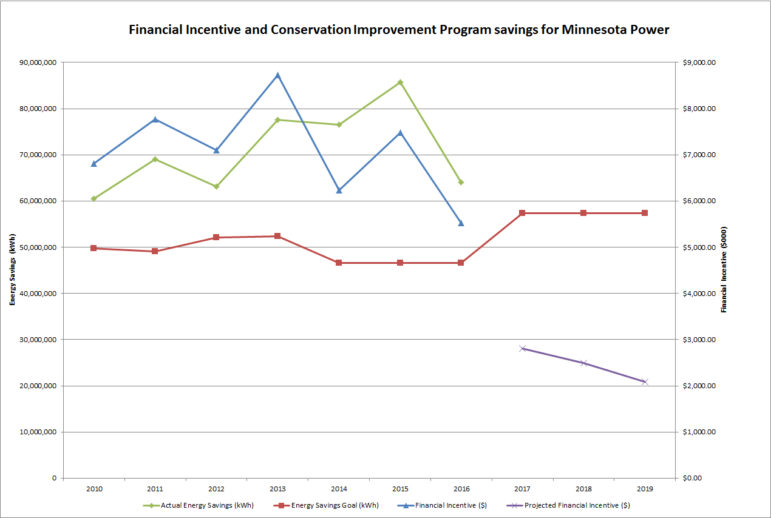
This week, Fresh Energy and clean energy allies proposed a full revenue decoupling mechanism in Minnesota Power’s rate case at the Minnesota Public Utilities Commission. Decoupling would benefit energy efficiency measures and provide revenue stability in the Minnesota Power service territory.
- The Public Utilities Commission recently revised the financial incentive formula surrounding conservation investments for Minnesota utilities to provide for a more fair return on energy efficiency programs.
- This change to the formula decreases Minnesota Power’s incentive to continue their strong performance on Conservation Improvement Program goals.
- The revenue decoupling proposal filed by Fresh Energy will remove the disincentive for Minnesota Power to continue providing strong energy efficiency programs in their territory.
Minnesota Power initially filed their ongoing rate case in 2016, their first since 2009. If approved, this decoupling mechanism would be the seventh utilized in the state, continuing the trend of implementing policies that encourage energy savings while providing revenue stability for utilities.
The timing of this decoupling proposal comes during an important time for the Conservation Improvement Program in Minnesota. Minnesota Power has had some of the best Conservation Improvement Program achievements in the state, and some of the strongest financial incentives to match. With financial incentives for the Conservation Improvement Program going down, this decoupling proposal could prevent the energy savings we have seen in the past from falling along with it.
Decoupling is an accounting tool used to move utilities past the model of simply selling more and more kilowatt hours. It’s been shown in recent research by Fresh Energy and The Natural Resources Defense Council to lead to greater investments in energy efficiency and greater energy savings as a result of those investments—all while providing more certainty for sometimes risk averse utilities.
CenterPoint Energy, Xcel Energy, and Ottertail Power have all either implemented decoupling policies or been ordered to explore mechanisms that would work for their system.
